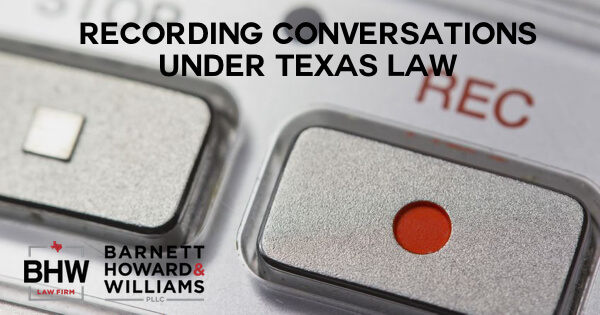 In the age of social media it seems more and more that our identities are being fast tied to what we post, like, love, or retweet on social media. Our firm handles criminal cases on a daily basis and in the course of our work we’ve seen an increasing reliance by law enforcement and prosecutors on social media websites like Facebook, Twitter, and Instagram. More often than not, investigators are scrolling through the entirety of a person’s social media profiles scouring the information for incriminating statements, pictures or conversations. A Facebook picture or an Instagram post that one might consider innocent, humorous, or obscure could end up being a key piece of evidence used against that person in a court of law.
In the age of social media it seems more and more that our identities are being fast tied to what we post, like, love, or retweet on social media. Our firm handles criminal cases on a daily basis and in the course of our work we’ve seen an increasing reliance by law enforcement and prosecutors on social media websites like Facebook, Twitter, and Instagram. More often than not, investigators are scrolling through the entirety of a person’s social media profiles scouring the information for incriminating statements, pictures or conversations. A Facebook picture or an Instagram post that one might consider innocent, humorous, or obscure could end up being a key piece of evidence used against that person in a court of law.
Here’s what you need to know about social media and the law.
Anything you post on Facebook, Twitter, and Instagram can and will be used against you.
Period. The general rule that citizens need to know is that by exposing information about yourself on social media you are essentially waiving your privacy rights. A person can’t scream at the top of their lungs in an open room the most private fact about themselves and then expect it to go unheard. The same is true about social media. By posting on sites like Facebook, Twitter,and Instagram, you are essentially consenting to whatever information you disclose to be made public. Even if your profile is set to private, your friends could end up sharing your content. Once public, that information is now available to everyone…including the government. If you are under investigation or suspect you might be under investigation for a criminal offense, and you have social media profiles, never post anything if you think it has even a remote possibility of hurting your case.
What can be done to protect my privacy on sites like Facebook, Twitter, and Instagram?
Don’t post! The first thing you can do is to place a limit and a premium on your social media activity. Some people feel like social media websites are the perfect forum for venting frustrations, making off-color jokes or personally attacking others. If you think about what you are posting in terms of who might potentially see your post, then you should limit the things you say. Remember, anything you post will be considered public information. If the temptation is too strong to post on social media, then you should really consider disabling your account altogether (at least while your criminal case is pending).
Can Social Media Privacy Settings be used to protect my information?
Privacy settings are the second step in preventing the government or any other unwanted viewers from obtaining your social media information. The majority of the more popular social media websites allow you to limit who can see your information and what can be seen. Putting strict limits on who and what can be seen on your Facebook, Twitter, and Instagram pages can be very effective in preventing unwanted eyes. But is it enough? For the general public, yes, it is. Further, law enforcement agents typically do not have special privileges to see information that has been set to “private” either. But, there are other ways of getting your information and viewing your profiles. Law enforcement has been known to create fake profiles with attractive pictures to entice users into accepting friend requests and allowing them to view information intended for friends only. There is nothing that legally prevents law enforcement from taking such actions.
If my Facebook, Twitter, and Instagram accounts are set to “Private,” is that enough to protect my information?
Ultimately, no. Even if a person hasn’t unwittingly accepted a friend request from an officer or agent and has limited access to their profile via privacy settings, law enforcement can still get a subpoena, court order or search warrant for your social media information.
According to their website, Facebook will only disclose records in accordance with the Stored Communications Act (“SCA”), 18 U.S.C. Sections 2701-2712 and in response to:
- A valid subpoena issued in connection with an official criminal investigation is required to compel the disclosure of basic subscriber records (defined in 18 U.S.C. Section 2703(c)(2)), which may include: name, length of service, credit card information, email address(es), and a recent login/logout IP address(es), if available.
- A court order issued under 18 U.S.C. Section 2703(d) is required to compel the disclosure of certain records or other information pertaining to the account, not including contents of communications, which may include message headers and IP addresses, in addition to the basic subscriber records identified above.
- A search warrant issued under the procedures described in the Federal Rules of Criminal Procedure or equivalent state warrant procedures upon a showing of probable cause is required to compel the disclosure of the stored contents of any account, which may include messages, photos, videos, wall posts, and location information.
So, even if your privacy settings won’t allow anyone to view your profile, law enforcement agencies may still be able to get that information by way of a subpoena, court order or search warrant.
Assume that unwanted eyes will see what you post on Twitter, Facebook, and Instagram.
If you’re under investigation for a criminal offense or charged with a criminal offense, you need to assume that unwanted eyes will see what you post on Twitter, Facebook, and Instagram. Our attorneys have handled cases involving cases where the government has used Facebook, Twitter, and Instagram postings against our clients. We don’t want that to happen to you. Call one of our attorneys and speak to us about what you can do to protect your information and ultimately your rights.
NOTE: The United States Supreme Court has confirmed that the police CANNOT search your cell phone to discover Social Media evidence, text messages, phone call, or anything else without a proper search warrant.










